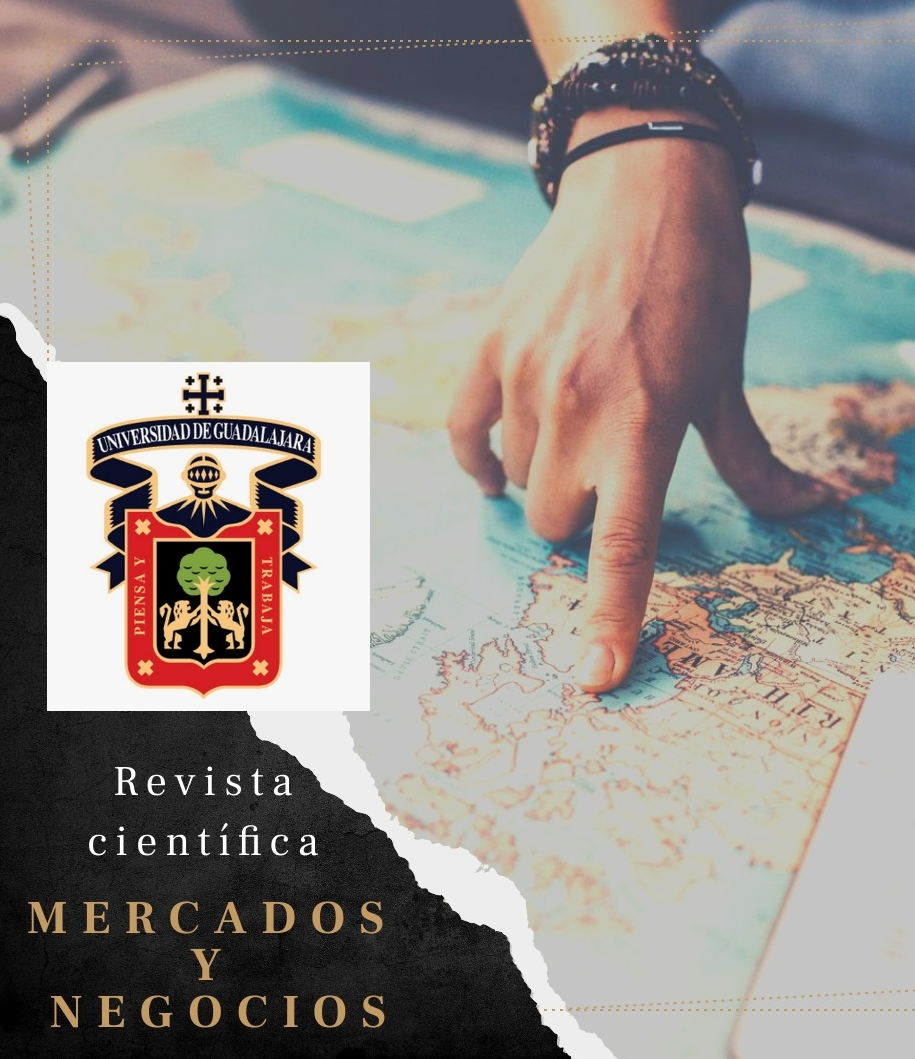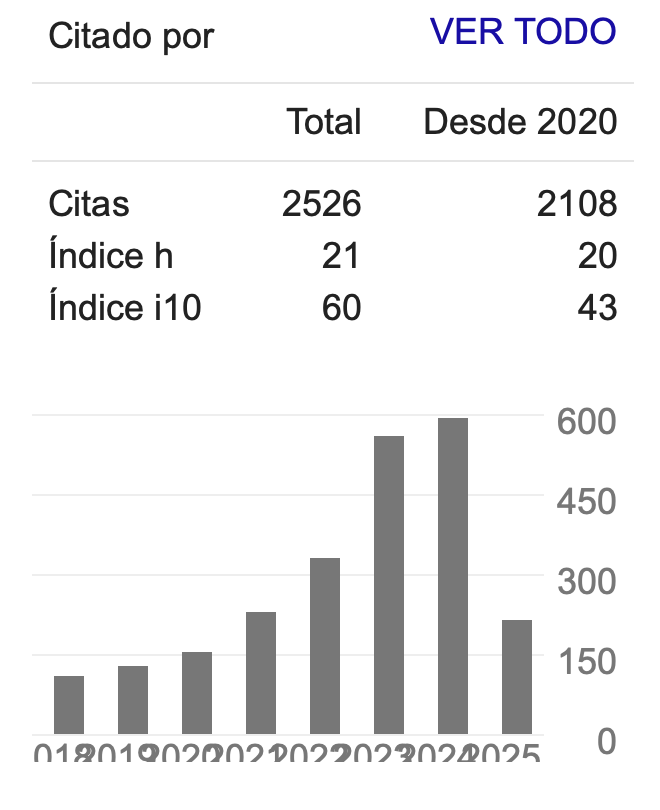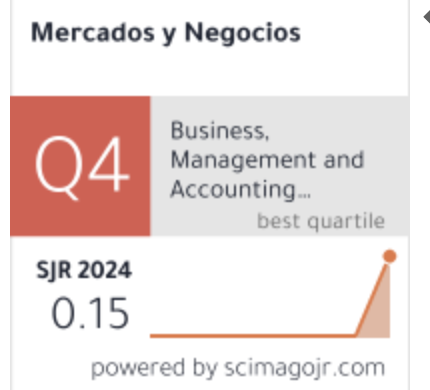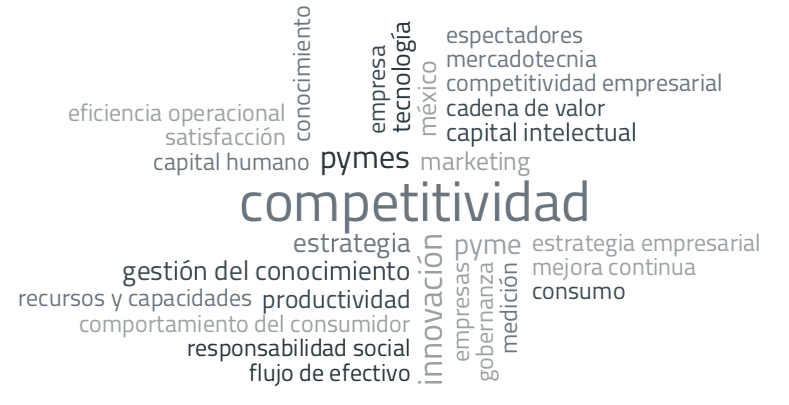Competitividad del comercio internacional de servicios intensivos en conocimiento de México, Chile, Colombia, Costa Rica y Brasil
DOI:
https://doi.org/10.32870/myn.v0i37.7088Keywords:
competitividad, servicios a negocios, importaciones, exportacionesAbstract
El sector servicios ha tenido un acelerado crecimiento en los últimos años, particularmente, los intensivos en conocimiento, por lo que, el objetivo de esta investigación consiste en identificar a los sectores más competitivos en el comercio internacional de servicios intensivos en conocimiento de México, Chile, Colombia, Costa Rica y Brasil, durante el periodo 2006-2016, a través del Índice de la Ventaja Comparativa Revelada (VCR) y el Índice de la Ventaja Relativa de Intercambio (VRI). Los hallazgos demuestran que los seguros, las telecomunicaciones, servicios de informática y de información, y otros servicios a negocios fueron los sectores más competitivos. Se concluye que América Latina comienza a ser una de las regiones más atractivas para el offshoring de servicios en el comercio internacional de servicios intensivos en conocimiento.References
Abramovsky, L., & Griffith, R. (2006). Outsourcing and offshoring of business services: How important is ICT?. Journal of the European Economic Association, 4(2-3), 594-601. DOI:10.1162/jeea.2006.4.2-3.594
Alemán, P. (2004). La industria del" software" en México, en el contexto internacional y latinoamericano, CLACSO, México.
Baumol, W. (1967). Macroeconomics of Unbalanced Growth: The Anatomy of Urban Crisis. The American Economic Review, 57 (3), pp. 415-426.
Balassa, B. (1965). Trade liberalisation and “revealed” comparative advantage. The manchester school, 33(2), 99-123. DOI: 10.1111/j.1467-9957.1965.tb00050.x
Bobirca, A., & Miclaus, P. G. (2007). A multilevel comparative assessment approach to international services trade competitiveness: the case of Romania and Bulgaria. International Journal of Human and Social Sciences, 1(1).
Bryson, J. R. (2007). The ‘second’global shift: The offshoring or global sourcing of corporate services and the rise of distanciated emotional labour. Geografiska Annaler: Series B, Human Geography, 89(s1), 31-43. DOI:10.1111/j.1468-0467.2007.00258.x
Carazas, P. M. (2008). Comercio potencial de servicios del Perú con el Asia Pacífico. Journal of Economics, Finance and Administrative Science, 13(24).
Carbaugh, R. J. (2009). Economía internacional. Cengage Learning.
Contractor, F. J., & Mudambi, S. M. (2008). The influence of human capital investment on the exports of services and goods: an analysis of the top 25 services outsourcing countries. Management International Review, 48(4), 433-445. DOI: 10.1007/s11575-008-0025-9
Deng, W. (2016). A Comparative Study on Competitiveness of KIBS in HK and Singapore. Modern Economy, 7(10), 1086. DOI:10.4236/me.2016.710110
Grünfeld, L. A., & Moxnes, A. (2003). The intangible globalization: Explaining the patterns of international trade in services.
Hatsopoulos, G. N., Krugman, P. R., & Summers, L. H. (1988). US competitiveness: Beyond the trade deficit. Science, 241(4863), 299-307. DOI: 10.1126/science.241.4863.299
Hill, T.(1977). On Goods and Services. Review of Income and Wealth 24 (4): 315–38. DOI: 10.1111/j.1475-4991.1977.tb00021.x
Hinloopen, J., & Van Marrewijk, C. (2001). On the empirical distribution of the Balassa index. Weltwirtschaftliches Archiv, 137(1), 1-35. DOI: 10.1007/BF02707598
Hufbauer, G., & Warren, T. (1999). The globalization of services. Institute for International Economics (Washington, DC) Working Paper
Javalgi, R., Martin, C., & Todd, P. (2004). The export of e-services in the age of technology transformation: challenges and implications for international service providers. Journal of Services Marketing, 18(7), 560-573. DOI: 10.1108/08876040410561884
Javalgi, R., Gross, A., Benoy Joseph, W., & Granot, E. (2011). Assessing competitive advantage of emerging markets in knowledge intensive business services. Journal of Business & Industrial Marketing, 26(3), 171-180. DOI: 10.1108/08858621111115895
López, A., Ramos, D., & Torres, I. (2009). Las exportaciones de servicios de América Latina y su integración en las cadenas globales de valor. Documento de Proyecto LC/W, 240.
Mandeng, O. J. (1991). Competitividad internacional y especialización. Revista de la CEPAL.
Mann, C. L. (2004). The US current account, new economy services, and implications for sustainability. Review of International Economics, 12(2), 262-276.
Porter, M. (2010). La ventaja competitiva. México: Grupo Editorial Patria.
Peterson, J., & Barras, R. (1987). Measuring international competitiveness in services. The Service Industries Journal, 7(2), 131-142. DOI: 10.1080/02642068700000014
Peterson, J. (1988). Export shares and revealed comparative advantage. A study of international travel. Applied Economics, 20(3), 351-365. DOI: 10.1080/00036848800000048
Sáez, S., Taglioni, D., Van der Marel, E., Hollweg, C., Zavacka, V. (2014). Valuing Services in Trade. A toolkit for competitiveness diagnostics. Banco Mundial. Washington DC.
Seyoum, B. (2007). Revealed comparative advantage and competitiveness in services: A study with special emphasis on developing countries. Journal of Economic Studies, 34(5), 376-388. DOI: 10.1108/01443580710823194
Strom, P., Alvstam, K., & Jones, A. (2016). Multilatinas and the growing service economy in Latin America: A Challenge for EU-Latin American business relations. European Review of Service Economics and Management, 1(1).
Mishra, S., Lundstrom, S., & Anand, R. (2011). Service export sophistication and economic growth (No. 5606). The World Bank.
Vollrath, T. L. (1991). A theoretical evaluation of alternative trade intensity measures of revealed comparative advantage. Review of World Economics, 127(2), 265-280. DOI: 10.1007/BF02707986
Woerz, J. (2008). Austria's competitiveness in trade in services (No. 003). FIW Research Reports.
Wyszkowska-Kuna, J. (2016). The growing importance of knowledge intensive business services in international trade. Studia Ekonomiczne, 266, 249-260.
Additional Files
Published
How to Cite
Issue
Section
License
Mercados y Negocios by Department of Mercadotecnia y Negocios Internacionales. University of Guadalajara is licensed under a License Creative Commons Attribution-NonCommercial 4.0 International.
The author retains the copyright.








